By Jackson Nuttall
Today we’ll explore essential tips and suggestions to help you understand and maintain your RV slide-out system.
Whether you’re a seasoned RV owner or a prospective buyer, these insights will keep your RV slide-outs in top-notch condition, reducing the risk of damage and costly repairs. Let’s delve into the world of RV slide-outs and demystify some common concerns!
Table of Contents – Quick Links
- Identifying Your RV Slide System
- Proper Use of Retracted Slides
- Ensuring Debris-Free Slides
- Complete Slide Closure
- Slide System Lubrication and Seal Conditioning
- Avoid Slide Jack Stands
- Conclusion
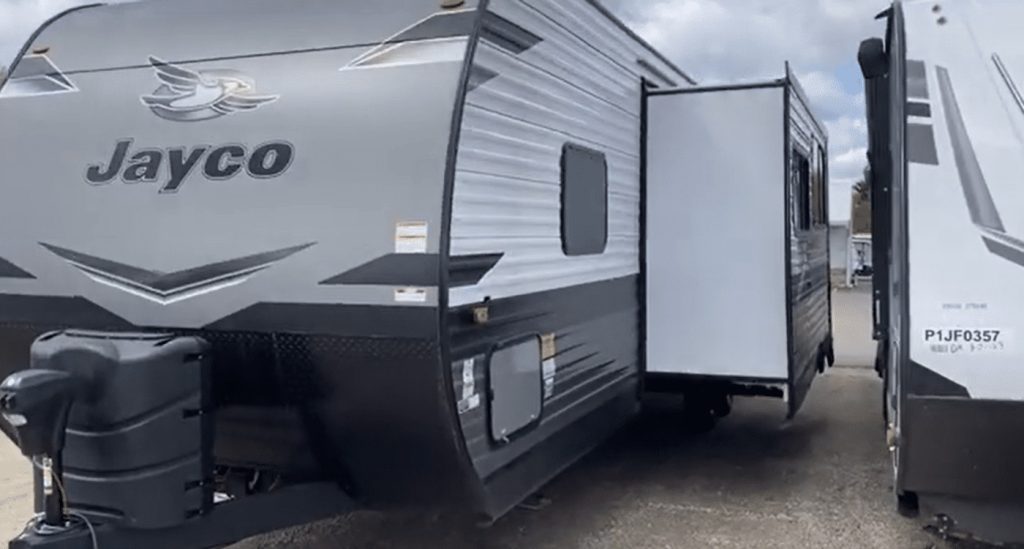
Identifying Your RV Slide System
The first step in maintaining your RV slide-out is identifying the type of slide system your RV has. There are various slide systems commonly found in towable RVs, such as rack and pinion slides, cable slides, and Schwintech slides.
Knowing your system’s specifics will help you tailor your maintenance approach accordingly.
Proper Use of Retracted Slides
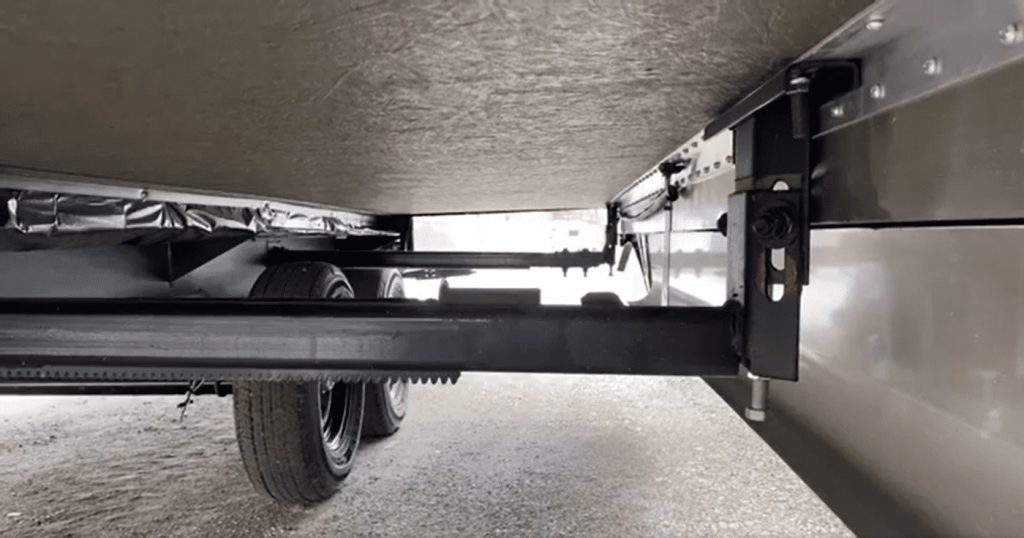
One recurring question among RV owners is whether it’s safe to use the slide while it’s retracted. The answer is a definite no! RV manufacturers don’t design towable RVs to be occupied with slides closed.
The structural integrity of the slide is compromised when retracted, making it unsafe and potentially damaging. Always fully extend the slide before using it to ensure safety and prevent any mishaps.
Ensuring Debris-Free Slides
Before retracting your slide, always check for debris or objects that might obstruct its movement. During travel, your RV experiences vibrations and jostling, which can cause items to shift and potentially jam the slide when closing.
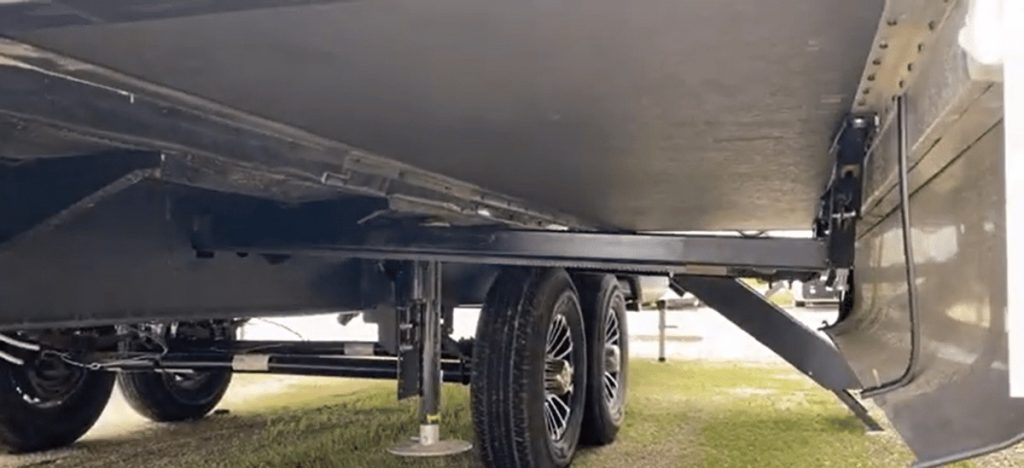
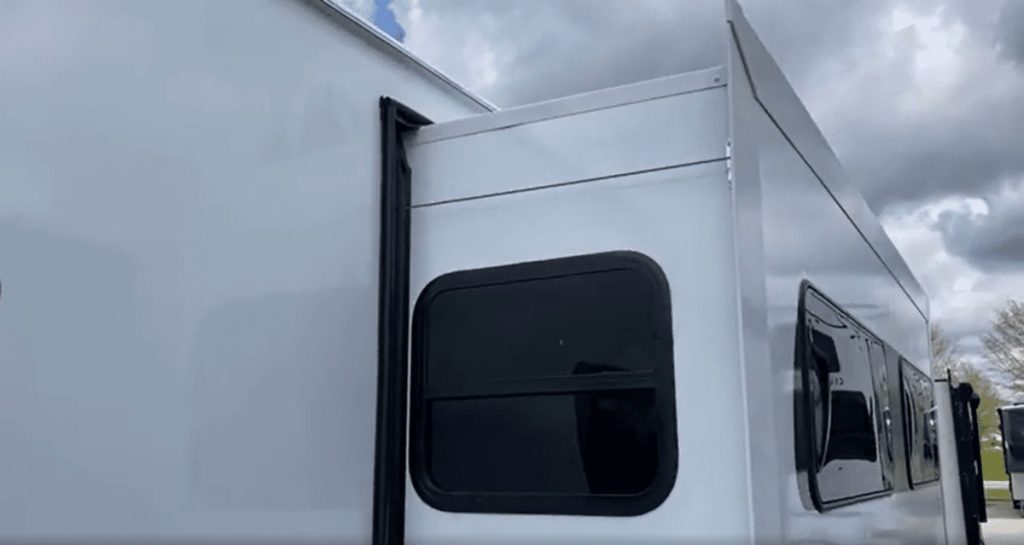
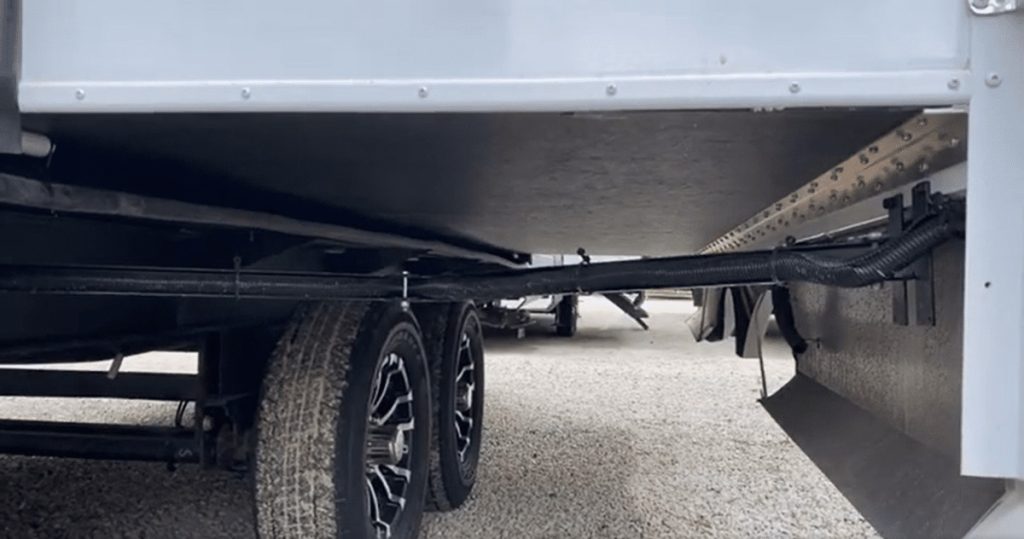
Using a simple tool like a yardstick or selfie stick to inspect for debris can save you from unnecessary damage and repairs.
Complete Slide Closure
Never leave your slide partially open or partially closed. Leaving your slide in an intermediate position can lead to structural issues, water leaks, and potential damage.
Ensure your slides are either fully extended or fully retracted to maintain proper sealing and prevent costly repairs.
Slide System Lubrication and Seal Conditioning
Slide systems require proper lubrication and slide seal conditioning to extend their longevity. However, the type of lubricant and conditioning required depends on the slide system your RV employs.
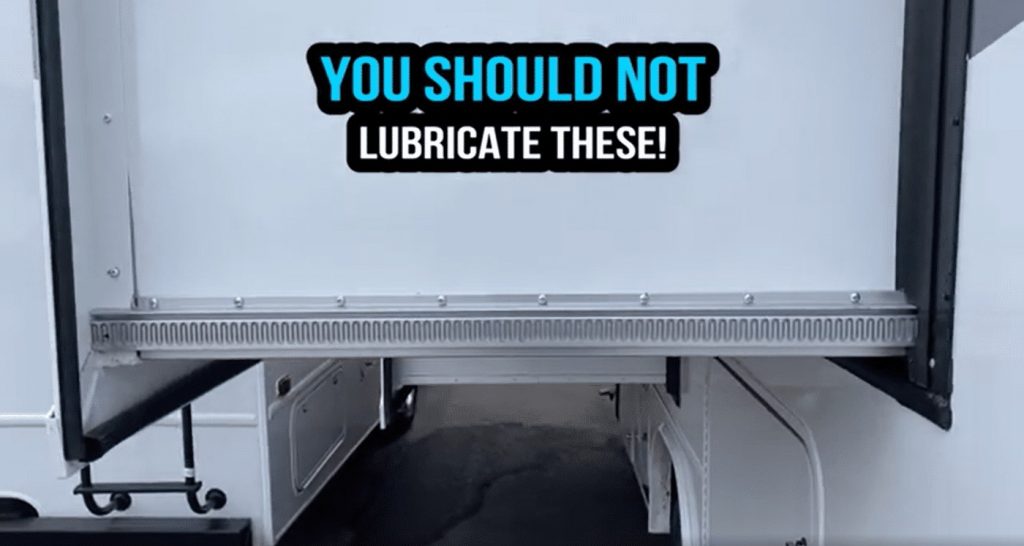
For rack and pinion slides, a specific slide system gear lubricant can be used. On the other hand, cable slides and Schwintech slides should not be lubricated but need regular slide seal conditioning to keep the seals pliable and effective.
Avoid Slide Jack Stands
Although slide jack stands may seem like an additional support measure, it’s best to avoid using them. Isolating the slide from the RV’s movement can stress the slide seals, leading to potential damage.
Stick to proper slide maintenance and avoid using jack stands for a trouble-free experience.
Know Your Slide and Keep Up With Maintenance
By following these essential tips, you can better understand and maintain your RV slide-out system, keeping it in good working order and preventing the need for expensive repairs.
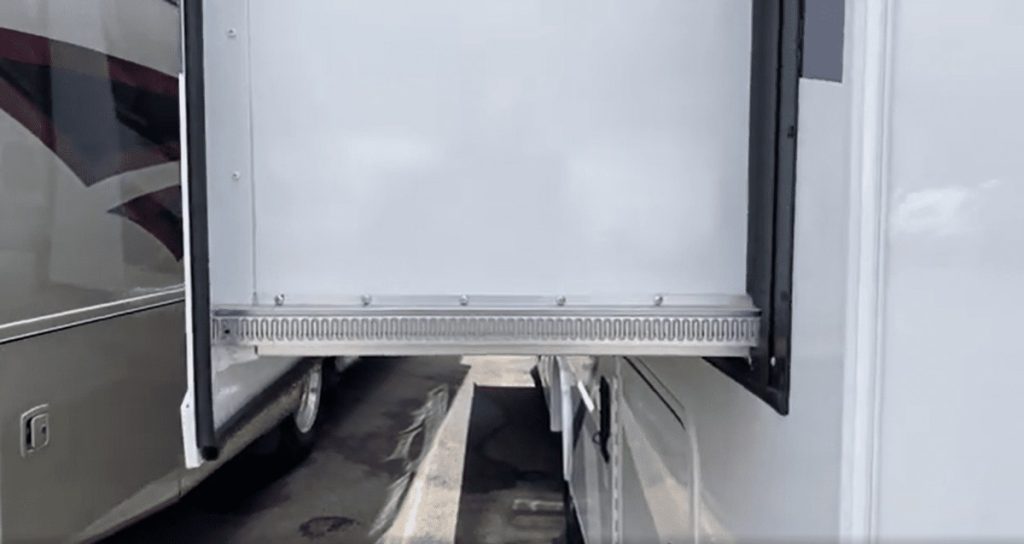
A well-maintained RV slide will ensure enjoyable camping experiences without the stress of unexpected issues. Happy camping and safe travels!
READ MORE
How to Get the Most for Your RV Trade
Travel Trailer vs Fifth Wheel: Which is Right for You?
